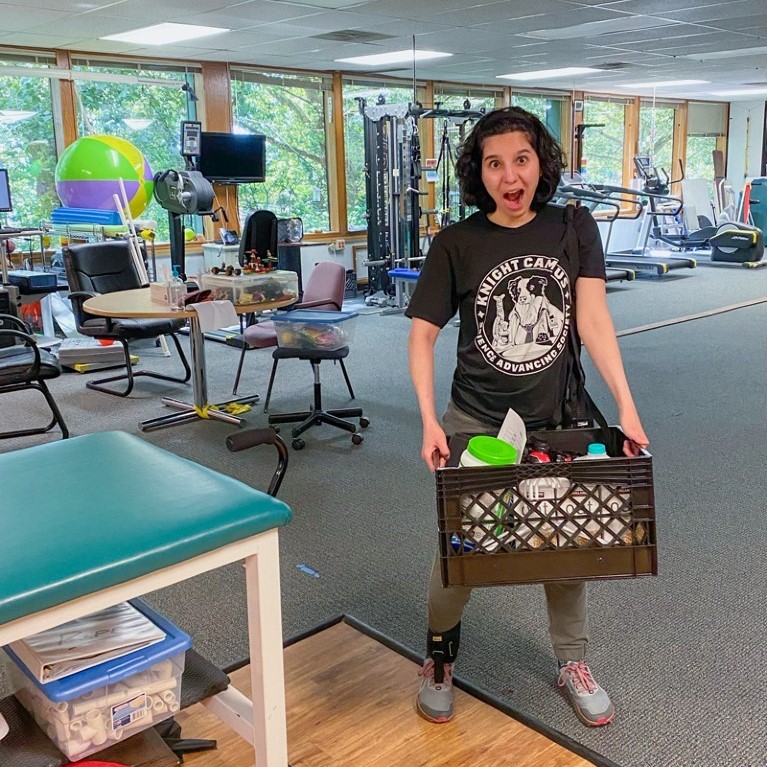 Home
Home

News Articles
A stroke derailed my academic career. Now I’m getting back on track.

A brain hemorrhage late in pregnancy upended Parisa’s life — and her tenure clock. Thanks to supportive physicians, family, and colleagues, she’s restarting her academic career.
“After my initial emergency surgery, the doctors diagnosed me with arteriovenous malformations, an abnormal growth of blood vessels in the brain that makes them prone to rupturing. I needed further surgery, but that could happen only after my baby was born.
The operation was scheduled for March at Stanford Medical Center in California. But what should have been a relatively low-risk procedure turned out to be much more complicated. I experienced several strokes that left me with deficits in my motor function and speech. The surgeons had to sacrifice a major blood vessel in my brain to save my life.
Ten days later, I was transferred to an inpatient rehabilitation centre in California, where I spent another four weeks. My condition was extremely poor; I had difficulty swallowing and little movement on my right side, and I was largely unable to communicate in either English or my first language, Farsi. But with the help of my husband and dedicated therapists, I saw considerable improvement. After four weeks, I was still mostly using a wheelchair to get around, but could use a walker to walk slowly and for short periods, with assistance from others, and I could speak in short sentences, although I couldn’t always express what I wanted to convey.
From there, I moved to an intensive outpatient centre in Portland, where I had therapy seven hours a day, five days a week. Eventually, this schedule was reduced to three days a week, which I plan to further reduce to a few hours a week in an outpatient setting in Eugene. I made progress every day, I got rid of my wheelchair after two weeks in Portland, and the walker after five. I am still learning to walk ‘normally’, but in April, I completed a 5-kilometre race, running all but one minute of it.” – Parisa, RWW Patient
Read Parisa’s full story here.